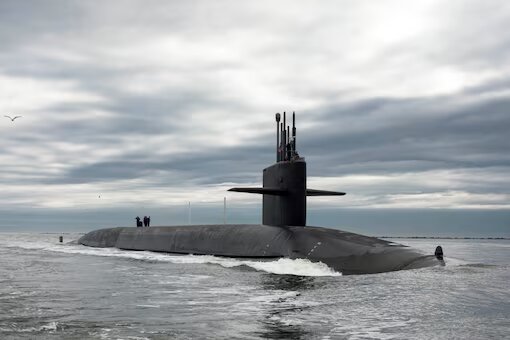The leaders of the US, UK, and Australia have revealed new details about their plan to build a fleet of nuclear-powered submarines of the next generation. The goal is to counter China’s influence in the Indo-Pacific region.
Under the AUKUS deal that was announced on Monday, the US will send at least three nuclear-powered submarines to Australia first.
Also, starting this year, members of the Royal Australian Navy (RAN) will be stationed at US and UK submarine bases to learn how to use them.
A small number of nuclear submarines from the US and UK will be based at a RAN base in Perth, Western Australia, starting in 2027. This is before Australia buys three American Virginia-class submarines in the early 2030s, with options to buy two more.
After that, the plan is to design and build a brand-new nuclear-powered submarine called SSN-AUKUS for the navies of the UK and Australia.
This attack ship will be made in the UK and Australia. It will be based on a design from the UK, but it will use technology from all three countries.
The interim and future boats will give Australia submarines that can go farther and faster than its current fleet. They will also have cruise missiles that can hit both land and sea targets.
The submarines won’t have nuclear weapons, though, and despite protests from China, US, Australian, and British officials say the plans are in line with international non-proliferation rules.
US President Joe Biden called AUKUS a “powerful entity” when he spoke to reporters at the Point Loma Naval Base in San Diego. He was joined by the Prime Ministers of Australia and the UK, Anthony Albanese and Rishi Sunak, respectively.
“By making this new partnership, we’re proving once again that democracies can bring security and prosperity, not just to us, but to everyone.
“We are at a turning point in history where the hard work of boosting deterrence and promoting stability will affect the chances of peace for decades to come. The US couldn’t ask for better partners in the Indo-Pacific, where so much of our shared future will be written.
The President said that the US has “protected stability in the Indo-Pacific for decades, to the great benefit of countries all over the region, from the Association of Southeast Asian Nations to the Pacific Islanders to the People’s Republic of China.”
“In fact, the whole world has benefited from the way we lead in the Pacific. We’ve made sure that everyone can use the sea lanes and the skies. We’ve followed basic traffic rules.”
Sunak directly pointed to China as a reason to worry.
“China is becoming more assertive, and Iran and North Korea are acting in ways that make the world less stable. This could lead to a world full of danger, chaos, and division.”
“In light of this new reality, it is more important than ever that we make our own countries stronger,” he said.
Albanese said that the submarine plan would create thousands of new jobs and be the “biggest single investment in Australia’s defence capability in its entire history.”
“This will be an Australian capability that will be run by the Royal Australian Navy and maintained by Australian workers in Australian shipyards,” the Prime Minister was quoted. Construction will start this decade.
He also said that the agreement is the first time in 65 years and only the second time in history that the US has shared its nuclear propulsion technology.
